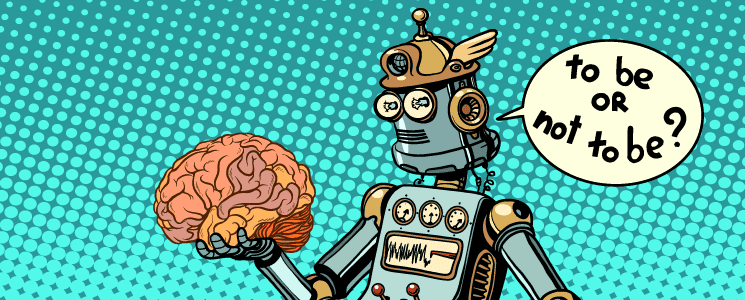How AI Delivers Better IVR
When you hear artificial intelligence (AI) and interactive voice response (IVR) in the same breath you may scratch your head and wonder, “how does that work?” Using an AI engine, like IBM’s Watson, with an IVR system creates smarter self-service applications and delivers better customer experiences.
With IVR callers have two different ways to input information: 1. using the keypad, or 2. speaking into the phone (assuming the IVR in question supports automatic speech recognition [ASR]). AI makes it easier for applications to process natural speech input intelligently. The result is an application that understands caller intent.
This means that you can ask open-ended questions with your voice self-service applications and provide conversational IVR that is also efficient and customer-friendly. With AI, users can input information without using DTMF and developers don’t need to build and manage custom grammars like they did for traditional ASR.
A chatbot is essentially a natural language intent system, and integrating AI into your IVR can create a chatbot that works in real-time with your voice channel.
AI at Work
Artificial intelligence is a broad technology category. When applied to a business process the idea is to have a machine learn how to mimic human behavior.
For example, let’s assume that a given process has four different triage levels. The sequence of actions required to resolve the issue depends on where the problem falls in triage. When an agent talks to a customer that agent should be able to triage the problem quickly and initiate the resolution process.
A critical step in this process is understanding where to initially slot an issue and then figuring out what the next steps are based on that initial assessment. In other words, agents need to understand the intent behind the customer’s request.
The whole idea with AI is that not only can technology make the same decisions that a person can, but it can also teach itself better decision-making.
Let’s say, for example, that an insurance company has AI working in the backend of its IVR. When a customer calls for the third time to check on their claim status, the AI can recognize that request, infer that the customer really wants an update, and can escalate the call as necessary.
One goal for AI is to build applications that can determine caller needs and what course of action to take to meet those needs more effectively than a person can.
Better Customer Service
You can use AI any place in your IVR where you used ASR before, or where you would like to use natural language understanding. An AI engine like IBM’s Watson comes with pre-built knowledge domains. These are like the individual speech grammars used with ASR, but they’re more comprehensive and most of the legwork has already been done. Watson also lets users build/define custom domains.
Watson AI isn’t completely self-sustaining, and still requires a bit of administrative management, but it is much easier and more cost-effective than the old method of building custom grammars.
AI offers incremental and in some cases significant value to companies that use IVR by delivering smoother, faster, and more efficient customer interactions, while at the same time reducing the time and costs necessary to implement these solutions.
Want to learn more about how Plum Voice and AI can help your business? Contact us today.

